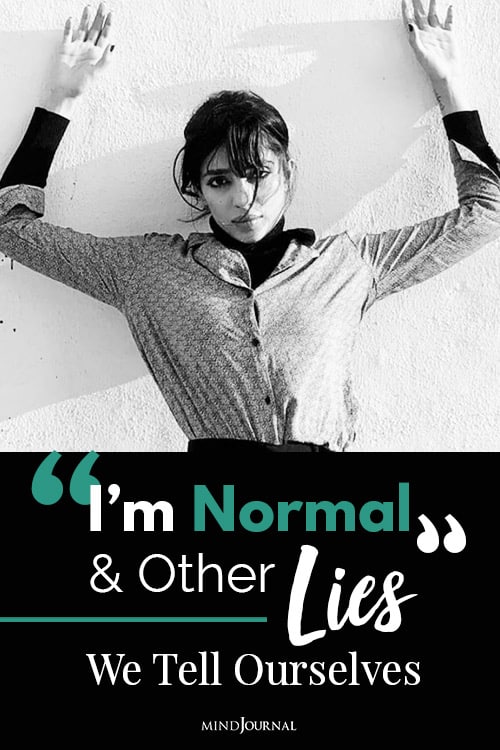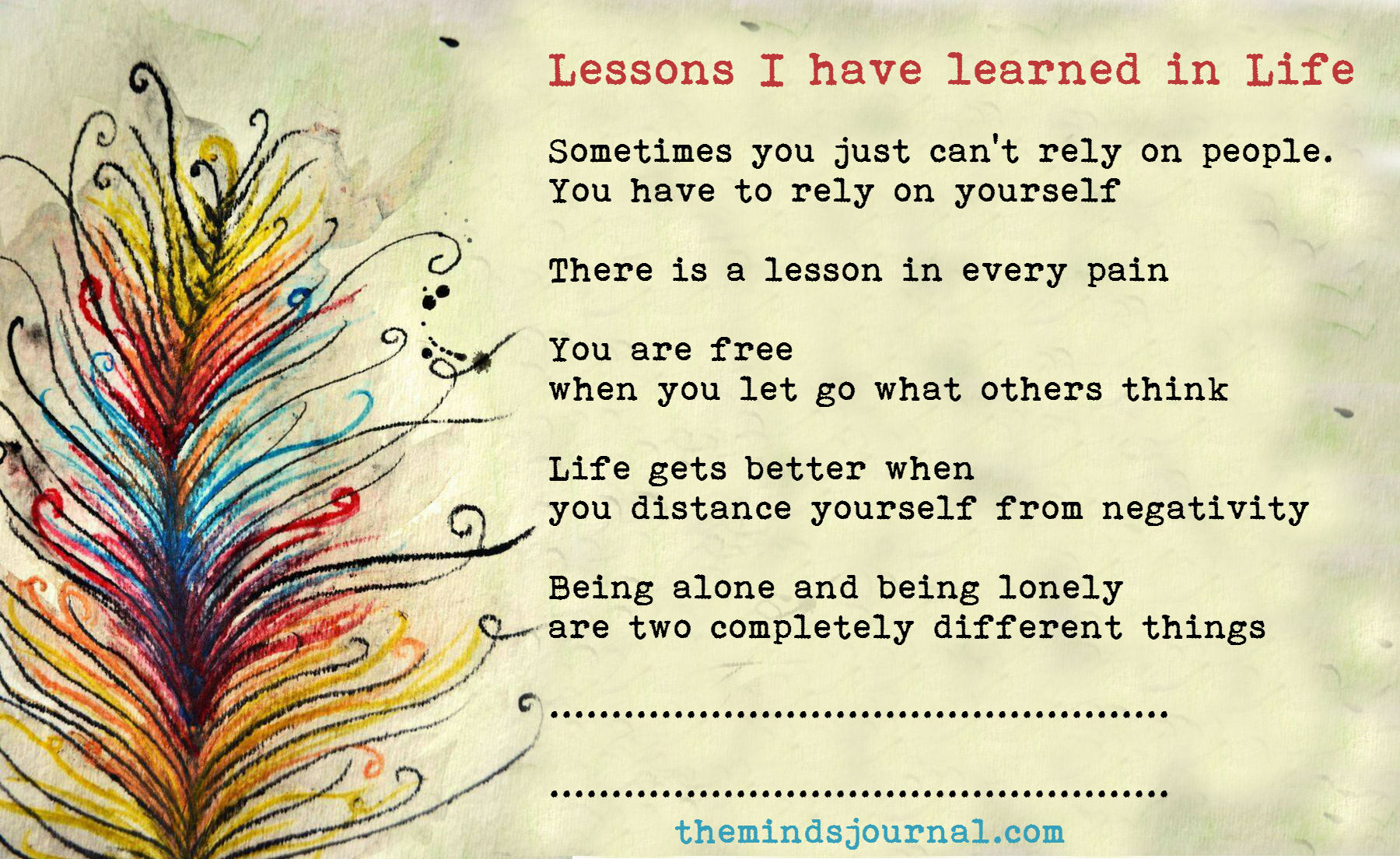I am normal or am I pretending to be? What is the concept of normal anyway? Is it the same as average? Our minds think in terms of categories and concepts. It comes easy to us. It’s how we make sense of the world and our role within it. Unfortunately, however, this “common sense” approach blocks out alternative ways of thinking.
In the last century, we’ve been feeding our minds a steady diet of concepts based on a core mistake – a statistical error – that physicists have known about for 90 years, but behavioral science is oblivious about. My field, psychology, has been one of the worst.
The “Big Five” personality types. Mental disorders. IQ.
All of them are massively supported by data – thousands upon thousands of scientific studies. Almost all are burdened by a shared analytic error: the “common sense” (but mostly false) idea that we can characterize humans based on what is usual, typical, average, or normal.
Read How You Screw Your Own Happiness, Based On Your Myers-Briggs Personality Type
The Concept Of Normal And Average
Data shows that the word “normal” was almost never used until after the Civil War, and was not used as it is now until well into the 1900s. The same is true for the word “average.”
And we’ve long known that something is wrong with these concepts. Since 1931 when the ergodic theorem was first proven, physicists have known that group averages (e.g., how a volume of gas molecules normally behave) apply to individuals (e.g., how individual gas molecules normally behave) only in a few very rare circumstances. None of those apply to people.

Todd Rose (in “The End of Average”) tells a story that will help you see one aspect of the problem.
When military planes were designed in the ’20s, a group of early pilots was measured to see how long their legs were, how large their torso was, where their eyes were when they sat down, etc., so that the planes would fit a normal pilot.
It worked alright, but as the planes became sophisticated in the ’50s, they began crashing due to pilot error. The military decided to re-norm the cockpit, theorizing that the body of the normal pilot may have changed over 3 decades. Nearly 4,000 military pilots were reassessed.
A single scientist, Lt. Daniels, thought outside of the box. He wanted to know how many pilots were normal overall. He took the 10 most important dimensions the team was measuring and asked, “how many of those nearly 4,000 pilots were in the middle 30% of the range for all 10 dimensions?”
Here was the startling answer: None. Yipes! No normal pilots?
How many were “normal” in at least 3 of the 10 critical dimensions needed to fly a plane safely?
3.5%
What was designed to fit everybody fit nobody?
No surprise. The very idea of “normal” violates known laws of science if you apply these concepts to individuals.
How about mental disorders?

“Major depressive disorder” (MDD) is a collection of signs and symptoms that are suspected to come from a hidden (and as yet unfound) disease process that supposedly makes you depressed.
If so, you’d think the average person with MDD would be similar to others with MDD. Are they?
In a recent study (Fried & Nesse, 2015) of 3,703 people diagnosed with MDD, some people had symptom clusters that were so unusual, they applied to only 5 or fewer participants out of the entire sample. That’s about a tenth of a percent … or less. How many do you suppose were that unique? 1%? 5%? 10%?
Read The Fundamental Differences between Sadness and Depression
More than half. Overall, there were 1,030 different symptom patterns found.
So, what is depression normally like? You can’t answer that question without lying – there is no “normal” depressive disorder. It is an abstraction from a collection of features gathered at the group level – when it is applied to individuals it falls prey to the ergodic error and falls apart.
One more. Perhaps the most controversial of all.
How about IQ?
Surely there is a normal IQ, right? Heck, you even know the number. It’s 100!
No. That “normally distributed scale score” we call IQ is forced on the actual test scores afterward. The tests are picked to relate one to the other and they still have a hard time doing so. And this idea that there is a fixed quality inside IQ that cannot change and supposedly is genetic? That idea is crumbling before our eyes.
A recent meta-analysis by Guerin, Wade, and Mano, 2021 found that inductive or relational reasoning training moves IQ significantly, even the part that is supposed to be fixed and genetic. A good example is the Strengthening Mental Abilities with Relational Training (“SMART”) program, based on Relational Frame Theory (RFT), a theory of language and cognition I developed in the 1980s. SMART trains relational skills with tasks like “WUG is the same as JEZ, and JEZ is the opposite of SIG … is WUG the same as SIG?”.
We know that only humans show these kinds of relational skills and if children do not acquire them, they are hobbled for life, with poor intellectual and verbal skills. If you train them, your IQ score increases. There are now multiple randomized trials of RFT-based IQ training, including SMART. All show clear gains and in areas of IQ that are never supposed to move.
The group-level “normal distribution” of IQ is simply not a cage for individuals to live inside.
We carry within us categories and concepts that make every challenge we face as human beings harder. Call it the “lie of averages.”
Workers are hired because they are “smart extroverts”. Children are sent to remedial programs because they missed “developmental milestones”. People walk through life with “mental disorders” attached to them like tattoos.
They’re all based on the lie of average.
What we need are concepts of behavior that fit the individual life trajectories of human beings, and that then can be gathered into a general understanding. We can get there … but we won’t until we first see that we’ve been had.
References
- Fried, E. I., & Nesse, R. M. (2015). Depression is not a consistent syndrome: an investigation of unique symptom patterns in the STAR* D study. Journal of Affective Disorders, 172, 96-102.
- Guerin, J. M., Wade, S. L., & Mano, Q. R. (2021). Does reasoning training improve fluid reasoning and academic achievement for children and adolescents? A systematic review. Trends in Neuroscience and Education. doi: 10.1016/j.tine.2021.100153
Written by:Steve C. Hayes Originally appeared on:Stevenchayes.com Republished with permission











Leave a Reply